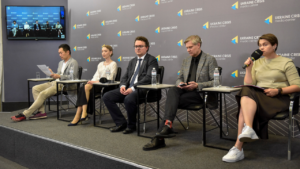Discussion on Russian Reparations for Missing Persons in Ukraine held in The Hague. Here are the four key points
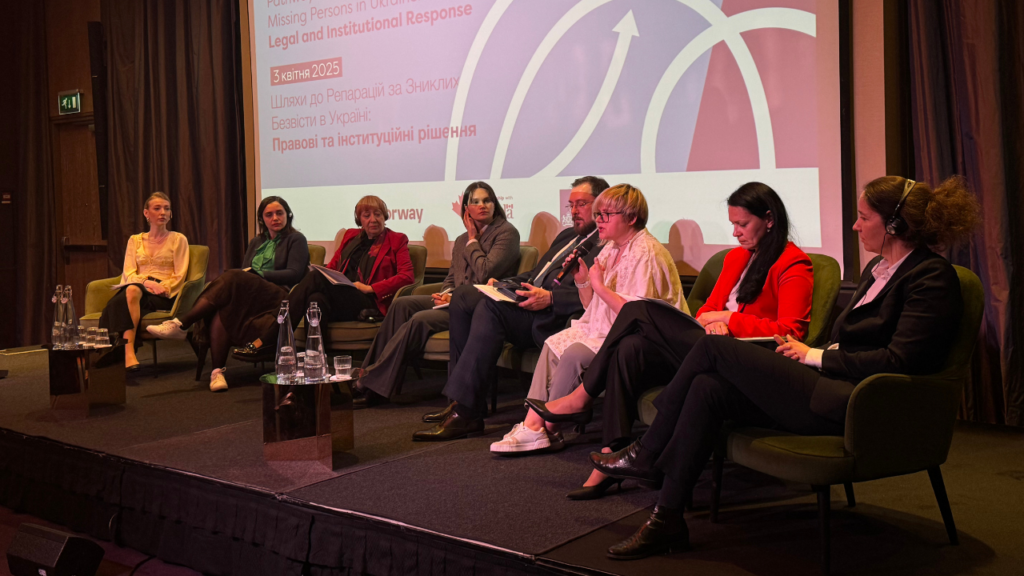
Reparations represent a state’s commitment to compensate for harm or loss inflicted by its breach of international law. They are a vital component of restoring justice for victims of armed conflicts and serve as a safeguard against the recurrence of crimes in the future. These issues were the focus of the expert discussion in The Hague, which addressed legal and institutional responses to securing reparations for missing persons in Ukraine.
Tetiana Katrychenko, Executive Director of the Media Initiative for Human Rights, emphasized that currently, compensation is not the most pressing concern for families of the missing, as the process could take decades. However, she stressed the importance of having a clear framework in place for how reparations can eventually be received. The full recording of the discussion is available on YouTube, and the key takeaways are summarized in this text.
Legal Status
During the discussion, participants agreed that a crucial first step is to clearly define the legal status of a missing person and to distinguish it from the status of a “forcibly disappeared” person.
Grazyna Baranowska, Professor of Migration Law and Human Rights at the Friedrich-Alexander University in Erlangen-Nuremberg, and member of the UN Working Group on Enforced or Involuntary Disappearances, explained that international law does not provide a precise definition of the term “missing person.” As a result, the term is broadly applied to anyone whose whereabouts are unknown, regardless of the circumstances of their disappearance. By contrast, there is a clear definition of “enforced or involuntary disappearance.”
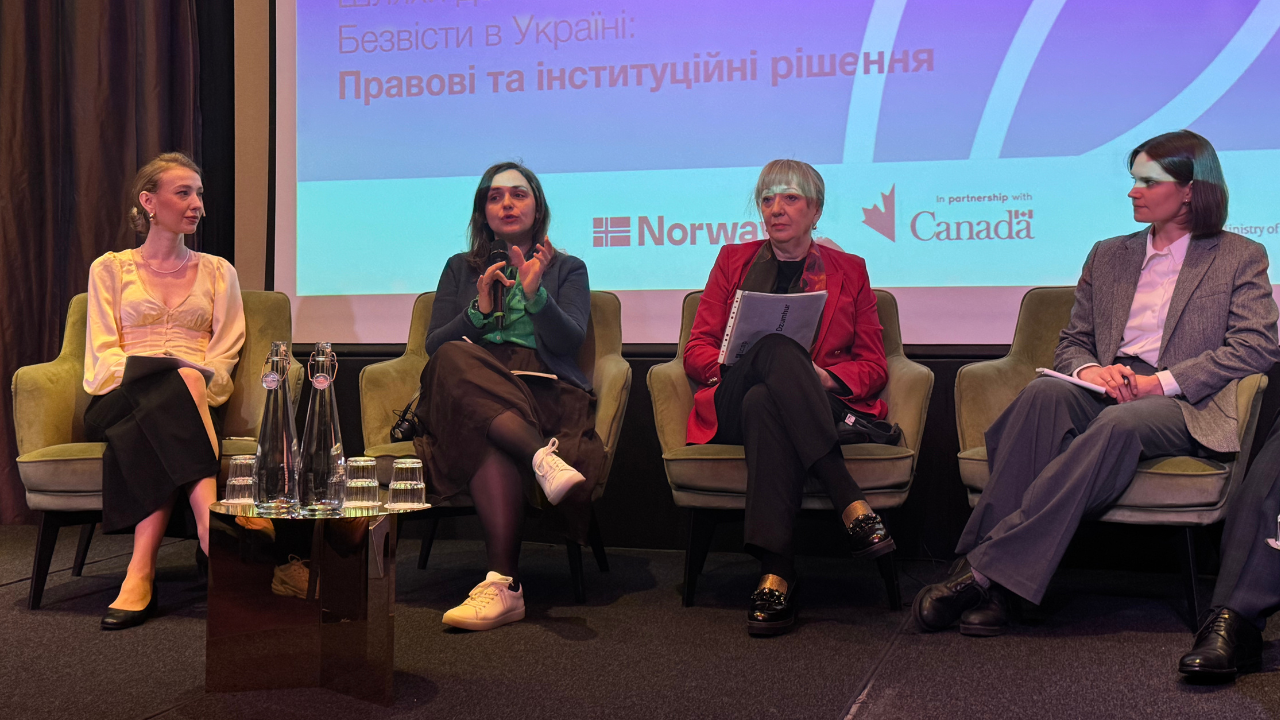
Grazyna Baranowska (second on the left), member of the UN Working Group on Enforced or Involuntary Disappearances
According to Grazyna Baranowska, the key to distinguishing between these terms lies in the circumstances of disappearance, i.e., whether it occurred as a result of coercive acts or due to other reasons. Depending on those circumstances, different mechanisms and criteria for granting reparations must be applied. A clear legal classification of missing persons will also have significant implications for the rights and social benefits afforded to their families, such as pensions, social welfare, property entitlements, etc.
International Cooperation and Coordination of Efforts
Ukraine’s key partners in securing reparations for the families of the missing include the International Commission on Missing Persons (ICMP), the International Committee of the Red Cross (ICRC), and the Register of Damage for Ukraine.
Artur Dobroserdov, the Commissioner for Persons Missing Under Special Circumstances, announced that Ukraine is soon to launch a Unified Center for the Identification of Victims of Military Aggression. This center will help identify deceased defenders and civilians by name. Dobroserdov also noted that international partners are supplying Ukraine with systems for collecting and preserving biological samples from military personnel. More than 240 such systems have already been delivered. “I hope that in the near future every service member directly engaged in combat will have the opportunity to provide their biological samples, which will aid greatly in locating them in the event of disappearance or death,” he said.
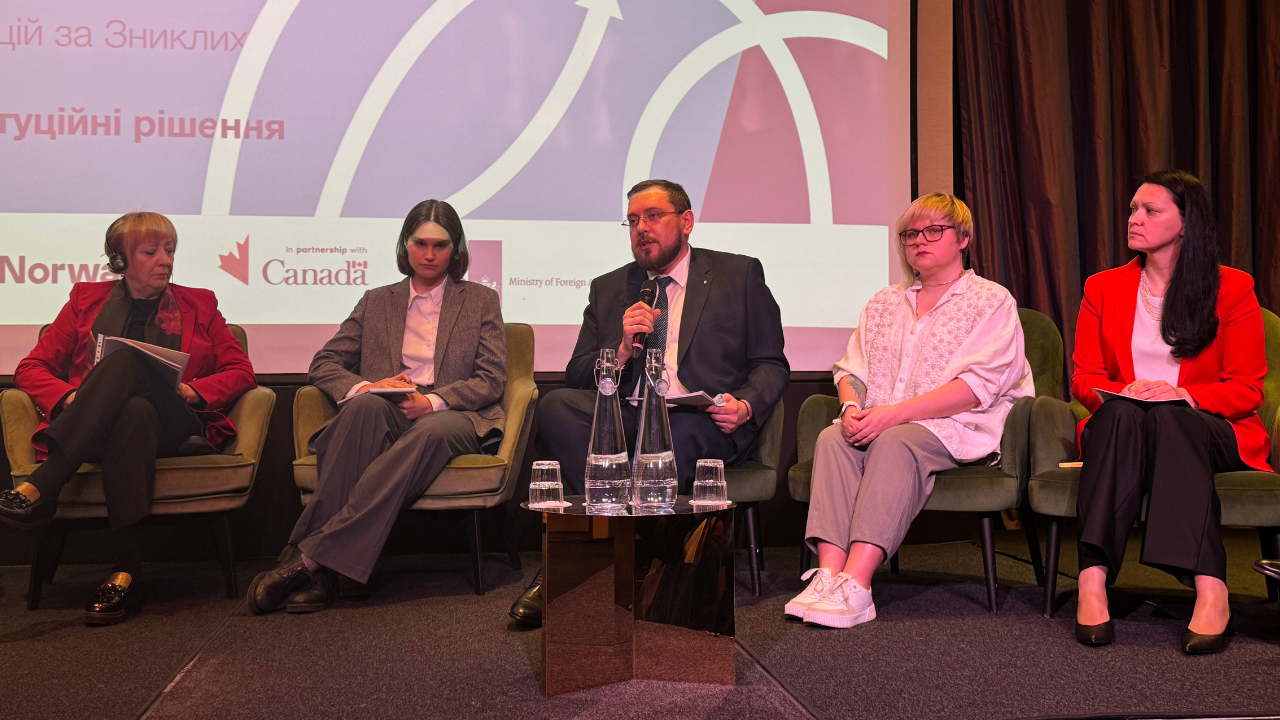
Artur Dobroserdov (in the center), the Commissioner for Persons Missing Under Special Circumstances
The next important step is the integration of a unified electronic database within Ukraine’s national forensic examination system to record information from post-mortem examinations.
Experts also intend to coordinate all databases currently accessible to Ukraine in order to collect the most accurate and comprehensive information possible about each missing person. Artur Dobroserdov has committed to scale up communication with families and civil society representatives, in particular via an online platform containing all essential information needed by the families of the missing.
The Register of Damage as a Key Mechanism
The Register of Damage for Ukraine (RD4U) is a vital mechanism established to document and record claims and information related to damage, loss, and harm inflicted on Ukraine as a result of Russia’s actions since February 24, 2022. The establishment of the Register in May 2023 marked a historic milestone, as such institutions are typically set up only after a ceasefire or the end of an armed conflict. In Ukraine’s case, it was launched during the war. The Register was established under the auspices of the Council of Europe, subject to the international treaty. While it does not have judicial authority, its function is to register claims. It operates in cooperation with Ukrainian government authorities and international partners to document facts and gather evidence, helping build up a comprehensive database of violations. “This Register may serve as a kind of memory book that preserves the record of all crimes committed in and against Ukraine as a result of the international armed conflict,” emphasized Tetiana Katrychenko.
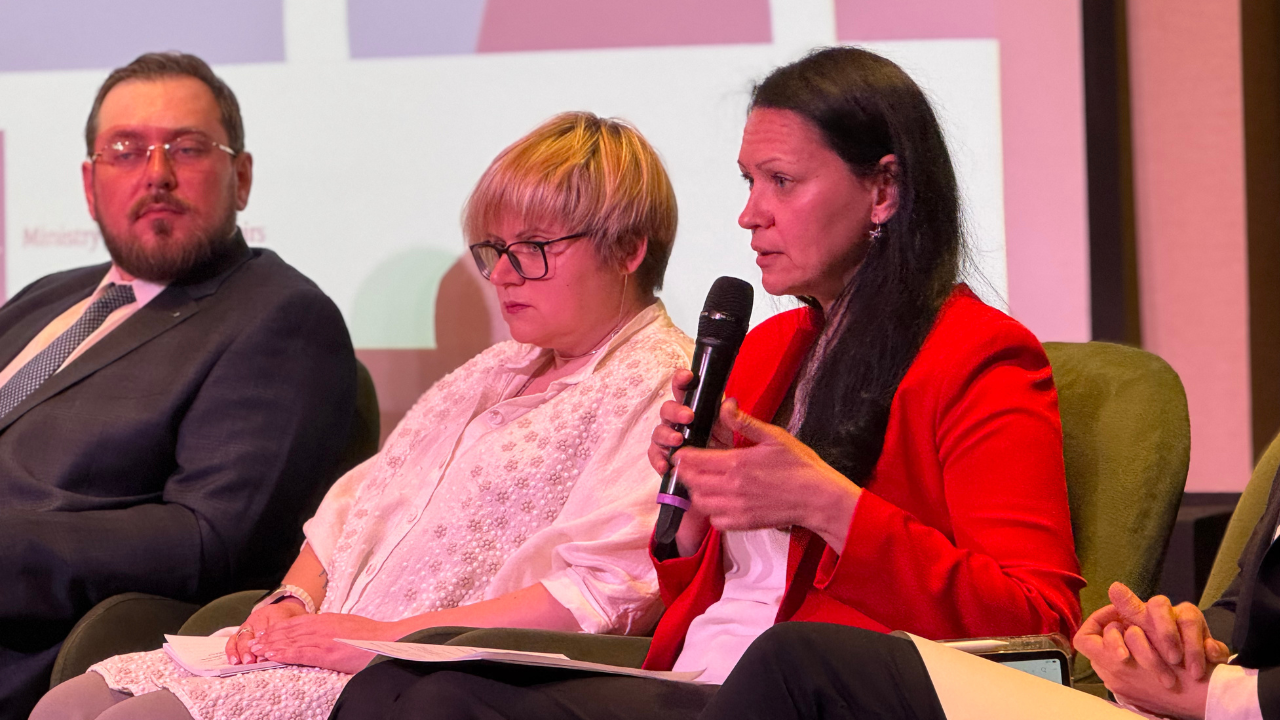
Tetiana Katrychenko (on the right) is the Executive Director of the Media Initiative for Human Rights
Alona Lunova, Advocacy Director at the ZMINA Human Rights Center, underscored the critical importance of involving civil society organizations in the development of the Register, as these organizations work closely with victims and document their testimonies. “The Register has a small team operating in Ukraine and is underrepresented in the regions,” she noted, “but it can communicate with victims through civil society organizations. We would welcome the opportunity to raise some of the challenges we face, for example, to clarify the role of testimonies we document and how they might be used. Civil society organizations often hold records in categories that are not available to the state. Moreover, the state procedures are not always transparent enough to ensure that the Register is adequately populated.”
The Register has recently opened Claim Category A2.2, Disappearance of a Close Family Member. This category specifically addresses the emotional suffering caused by the disappearance of a loved one. While no compensation can ever truly remedy the pain of such a loss, the Register provides families with a formal mechanism to document their experience and seek redress. In a short period of time, nearly 2,500 claims have already been submitted under this category.
“Importantly, the definition of a ‘close family member’ in this context is quite broad. It includes relatives, spouses, children, civil partners, and others who share a close bond and a degree of dependency with a missing person. It is also essential that claims under this category can be submitted in relation to both missing civilians and missing military personnel. The only requirement is that the individual’s disappearance must be officially recorded in the Unified Register of Persons Missing Under Special Circumstances,” explains Kateryna Pisotska, Lawyer with the Register of Damage.
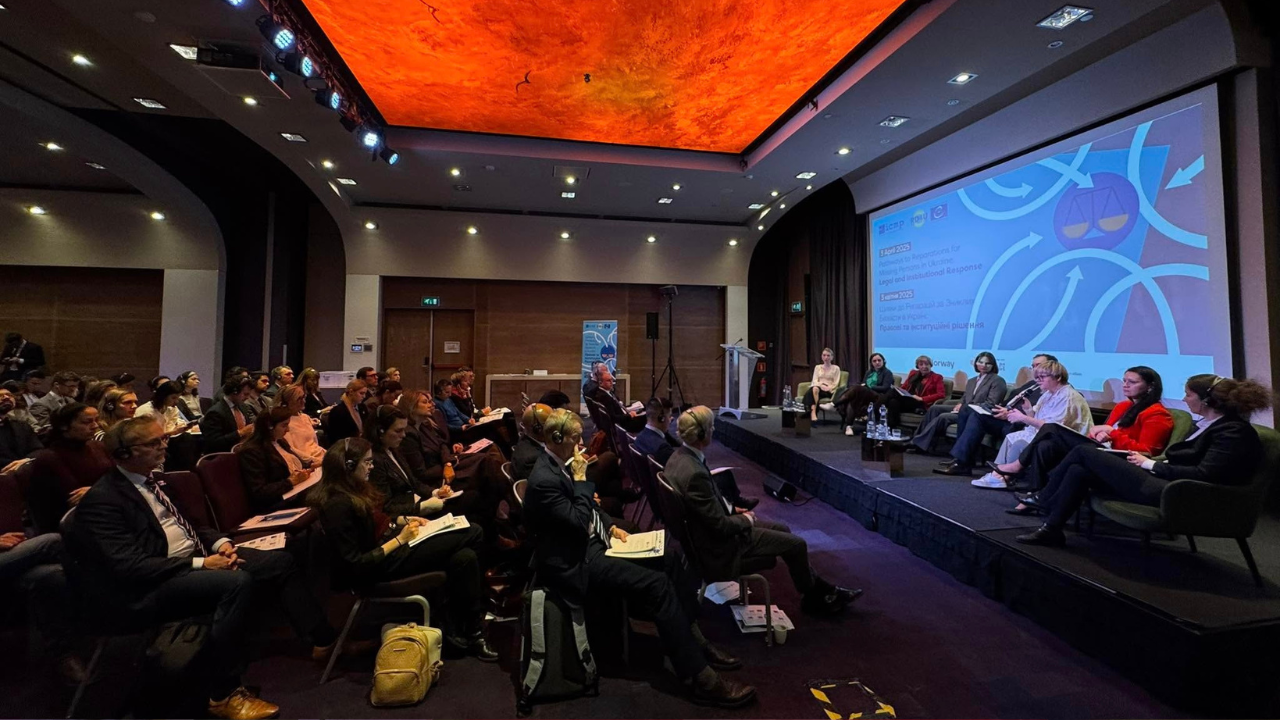
Centering the Needs of Victims
Another key point raised by experts in The Hague was ensuring that decisions on reparations are guided by the needs and interests of victims.
“This process must involve the state. “It is essential that victims remain at the center of all efforts. We must consult with them, engage in dialogue, and only then move forward with developing an implementation plan,” said Franziska Eckelmans, Legal Adviser for the Trust Fund for Victims at the ICC.
Tetiana Katrychenko echoed this sentiment, emphasizing that the primary concern for families today is the return of their loved ones, access to information, and a sense of care and support from the state:
“Some will return alive from Russian prisons; others will have only remains or bodies returned. But that sense of clarity is profoundly important. Many families we work with are tirelessly pursuing this goal. MIHR has proposed a plan for the return of civilians. It is crucial that we verify and categorize missing persons into smaller, manageable groups, seek assistance from partner states, and engage third countries to facilitate dialogue with the Russian Federation on the return of these people.”
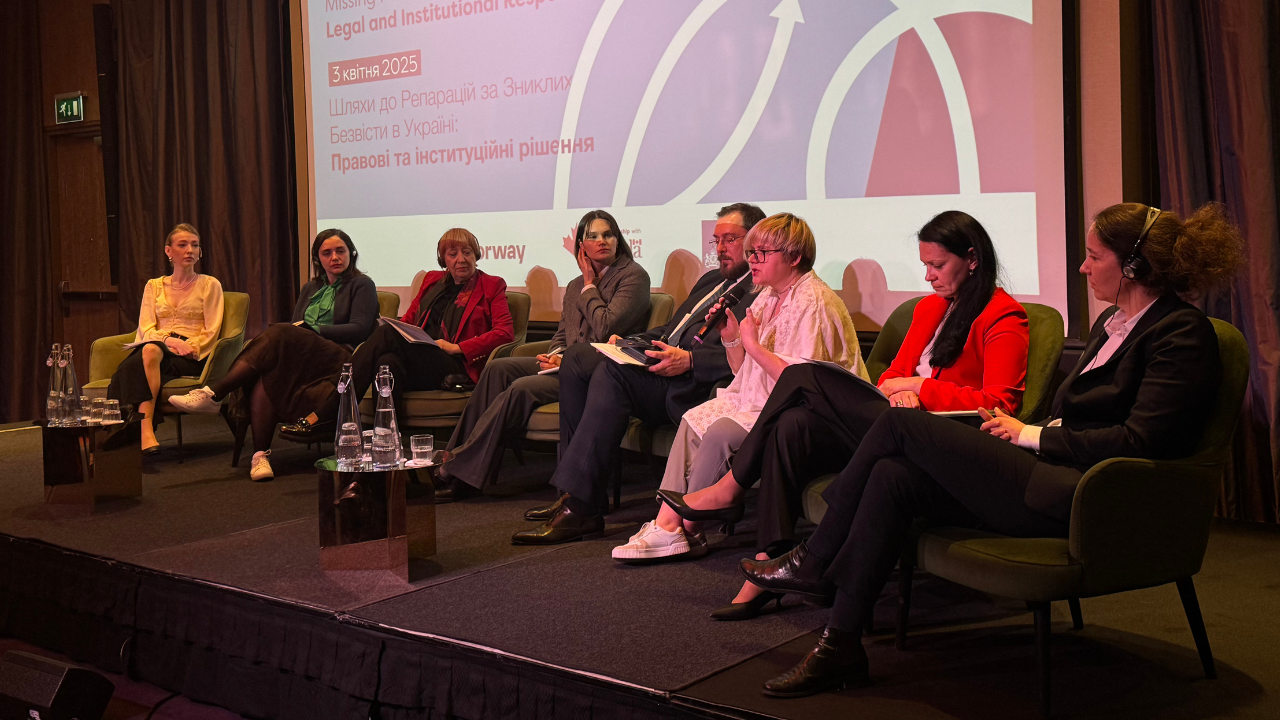
Speakers at The Hague Event
Another essential dimension – memorialization – was raised by Alona Lunova:
“This need may not always be clearly expressed, often due to uncertainty or lack of understanding about how it works. But some families have told us they would like to have a form of memorial – a place where they can come to reflect on their loved ones who have gone missing. Unfortunately, I feel there are not enough discussions or proposals around this issue in Ukraine. Relatives are sometimes hesitant to raise this issue in larger forums because they fear that having a memorial site might be perceived as accepting that their loved ones are deceased. For that reason, it must not be a cemetery. But I strongly believe there is space here for international partners to help identify meaningful and sensitive forms of memorialization.”
Author: Yana Ilkiv, journalist at the MIHR



